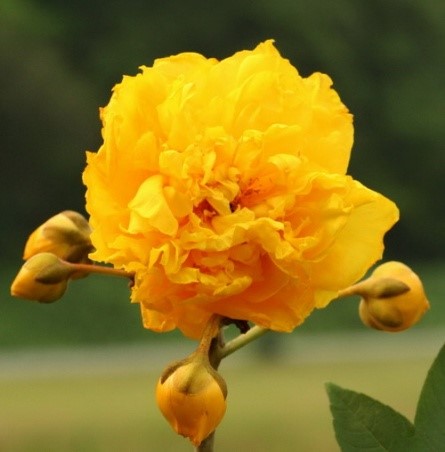

Recently, Dr. ZHUANG Ping, Prof. LI Zhian and Prof. XIA Hanping of South China Botanical Garden have made distinct progress in study on human health risk from heavy metals around the Dabaoshan mine, North Guangdong province. The study was supported by the National Natural Science Foundation of China. It was first designed to investigate concentration of the heavy metals (Cu, Zn, Pb and Cd) in soils and food crops, and then to estimate the potential health risk of metals to humans via consumption of polluted food crops grown at four villages around the Dabaoshan mine, South China. As a result, they found that rice tended to accumulate higher concentration of Cd and Pb in grain parts. The concentration of Cd, Pb and Zn in vegetables exceeded the maximum permissible value in China. Taro grown at the four sampled villages accumulated high concentration of Zn, Pb and Cd. The target hazard quotient (THQ) of rice at four sites varied from 0.66-0.89 for Cu, 0.48-0.60 for Zn, 1.43-1.99 for Pb, and 2.61-6.25 for Cd. Estimated daily intake (EDI) and THQs for Cd and Pb of rice and vegetables exceeded the FAO/WHO permissible limit.
Heavy metal contamination of soils resulting from mining and smelting is a major concern due to the potential high risk involved. From the results of rice and vegetable samples measured in this study, they obtained better knowledge regarding the impact of the mining and smelting operation on the environment and the potential risk to human health. Results showed heavy metal contamination of food crops grown around the mine posed a great health risk to the local population through consumption of rice and vegetables. Therefore, this region around Dabaoshan mine urgently needs to cure the toxic metal contamination.
Recently, Zuang Ping and his copartners have published their above findings in internationally prestigious journals, Science of the total Environment, and Environmental Geochemistry and Health.

